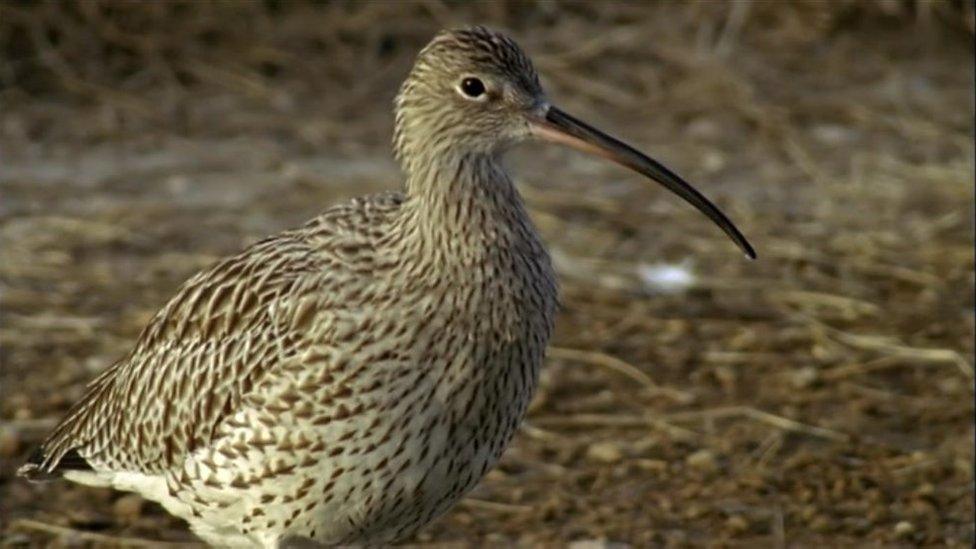Prince Charles watches Sandringham endangered curlew release
- Published
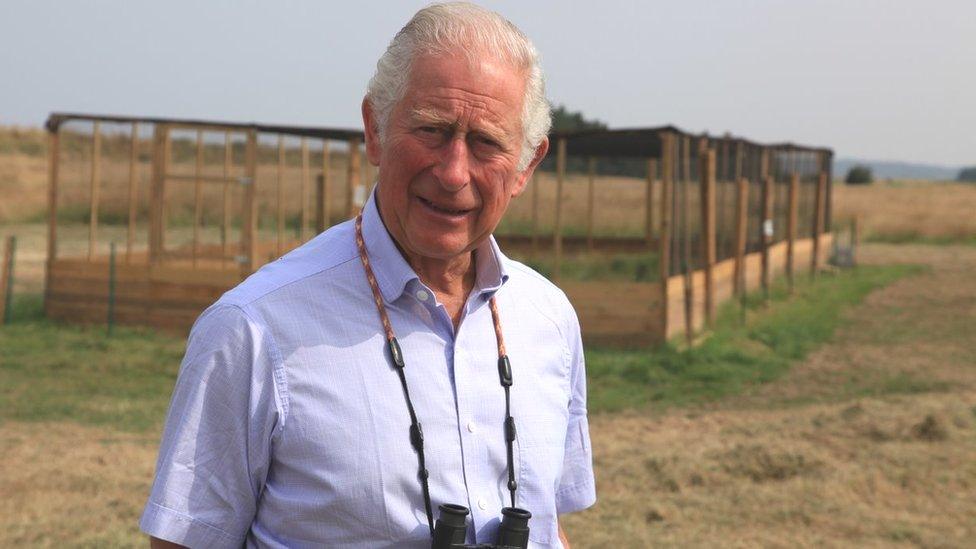
The Prince of Wales watched as the hand-reared birds were set free
Endangered curlew chicks have been released at the Queen's Sandringham Estate in Norfolk, watched by the Prince of Wales.
More than 80 chicks were hand-reared at the nearby Pensthorpe Natural Park after eggs were collected from Ministry of Defence (MoD) sites.
Eggs at MoD sites are usually destroyed as they "pose a huge danger to aviation", the park said.
The project aims to boost the birds' population in the east of England.
The Eurasian curlew is Europe's largest wading bird and is now red-listed, external, meaning it is of the highest conservation priority, needing urgent action.
The UK is home to almost a quarter of the global breeding pairs - about 58,500 pairs - but the species has declined significantly since the 1970s, due to loss of habitat and predation.
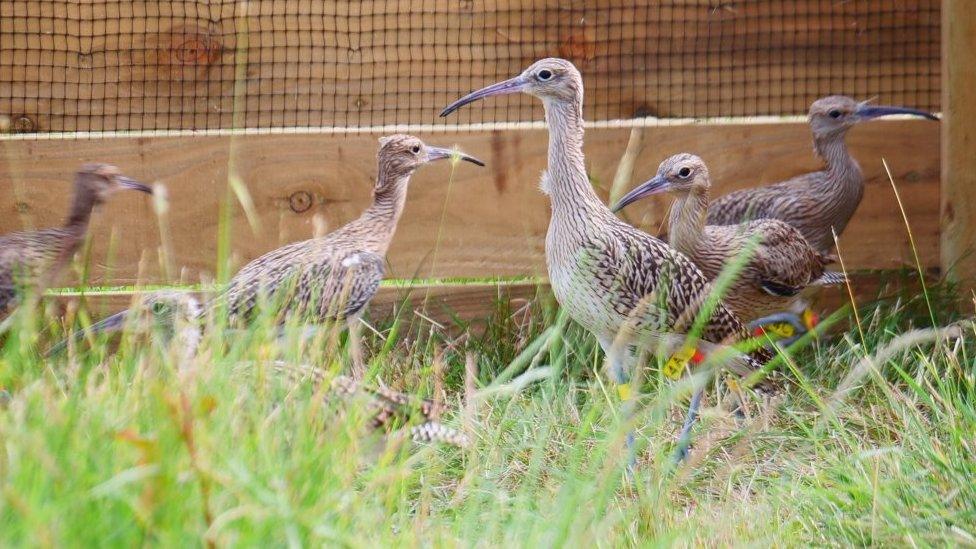
Some of the curlews that have now been released
The project, led by Natural England, collected 147 eggs from eight military and civilian airfields across England.
More than 100 were taken to a rearing facility at Pensthorpe Conservation Trust, and a further 41 taken by the Wildfowl and Wetlands Trust for a project in Dartmoor.
Dozens of the fully-fledged chicks are now being released at two Norfolk sites - the Sandringham Estate, and Wild Ken Hill, a sustainable farming project bordering The Wash which this year played host to BBC Springwatch.
"Today's release on the Sandringham Estate marks a significant milestone for the recovery of this iconic bird," said Tony Juniper, chairman of Natural England.
"We hope that the translocation of curlews at this large scale, a method that has never been tried before, will make a real difference to the population in the east of England."
Prince Charles said he had "always cherished the evocative call of the curlew" and was delighted the Sandringham Estate had been able to assist in the project.
"Every curlew nest is something to prize, nurture and protect, and it is utterly vital that we work together to turn this iconic bird's fortunes around," he said.
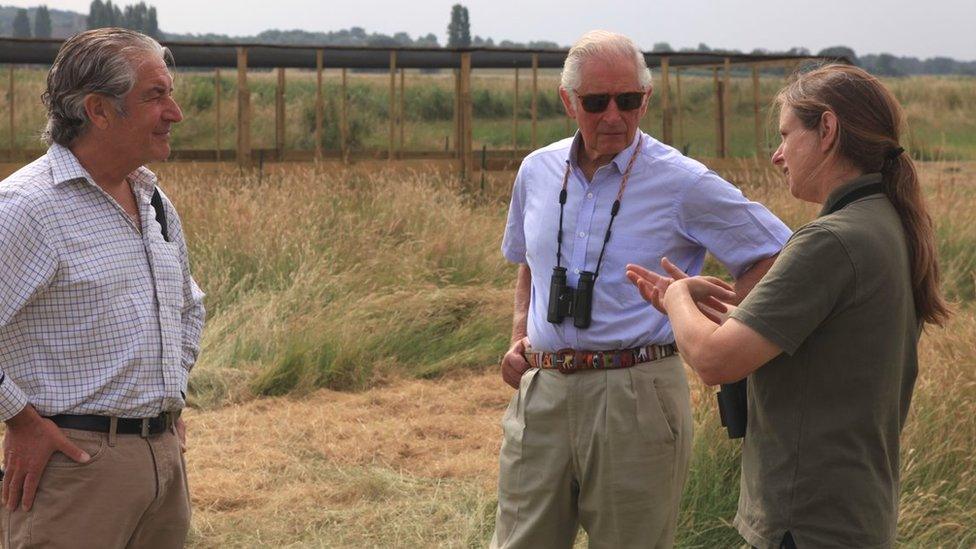
Tony Juniper from Natural England, the Prince of Wales, and Chrissie Kelly from Pensthorpe witnessed the release of the birds
Chrissie Kelly, head of species management at Pensthorpe Conservation Trust, said staff had reared "more than 80 curlew chicks to fledge this year" and described it as a "significant step" to safeguarding the population of the birds in the wild.
Air Commodore Sam Sansome, inspector for safety for the Royal Air Force, said: "To see so many of them now successfully reared and released into habitats that are safe for them, and safe for us, is fabulous."

Find BBC News: East of England on Facebook, external, Instagram, external and Twitter, external. If you have a story suggestion email eastofenglandnews@bbc.co.uk, external
- Published27 May 2021
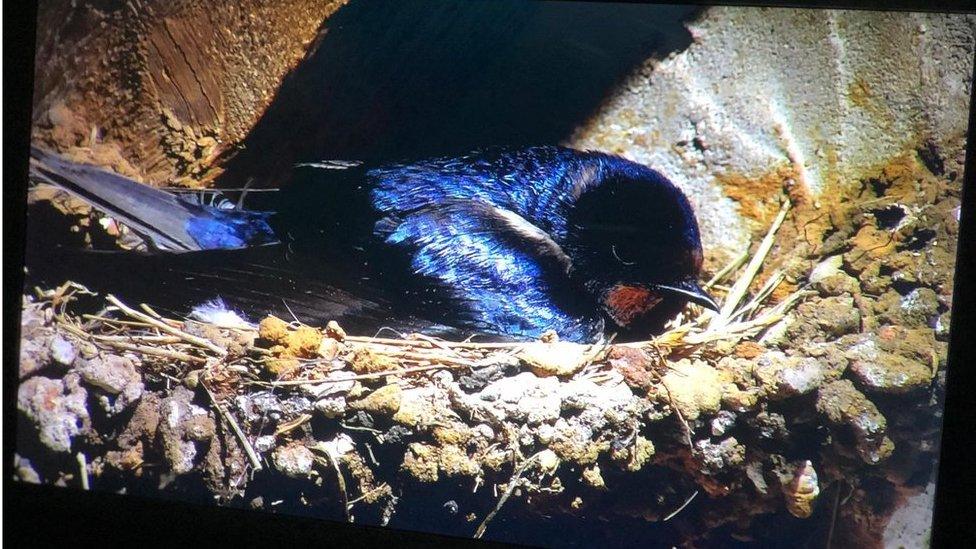
- Published23 April 2021
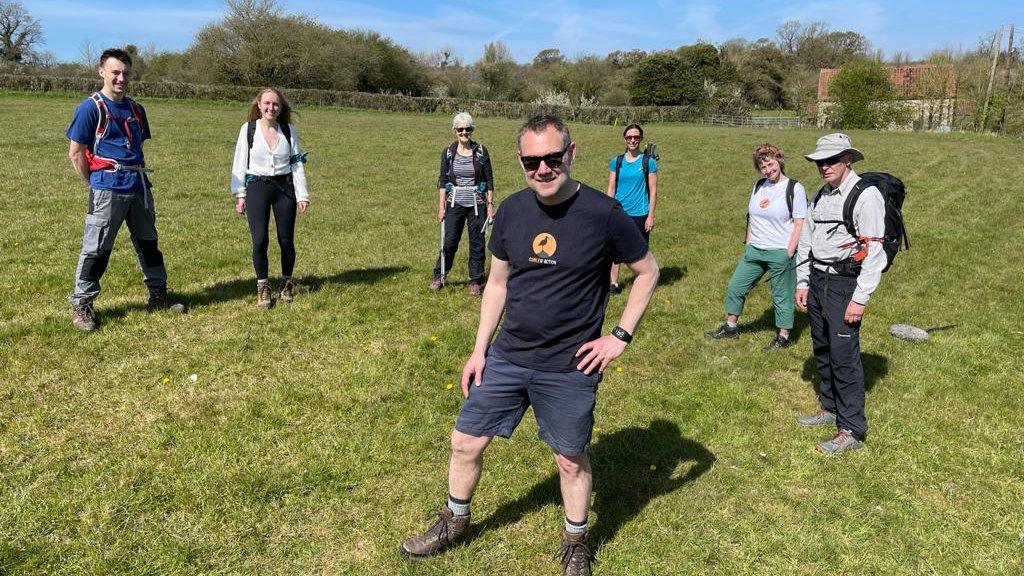
- Published15 March 2021
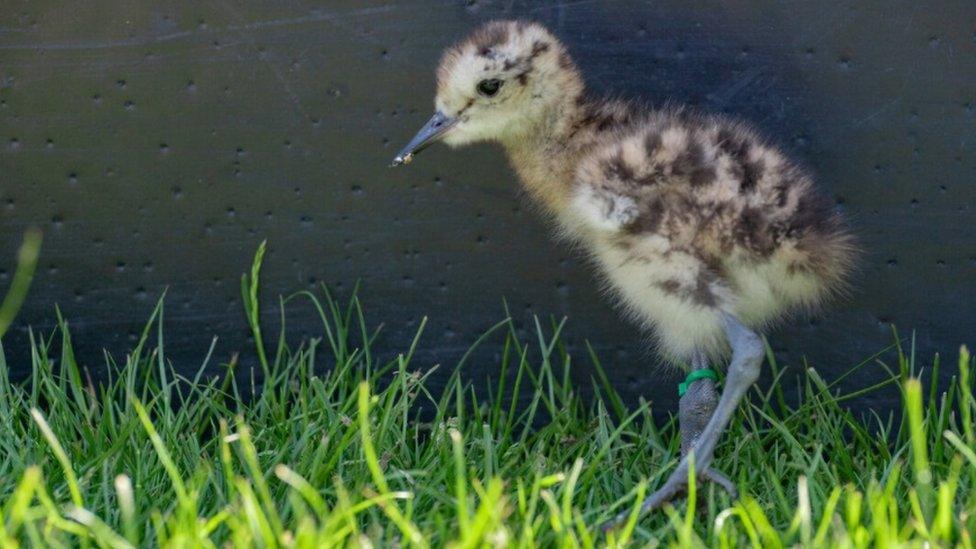
- Published31 May 2019
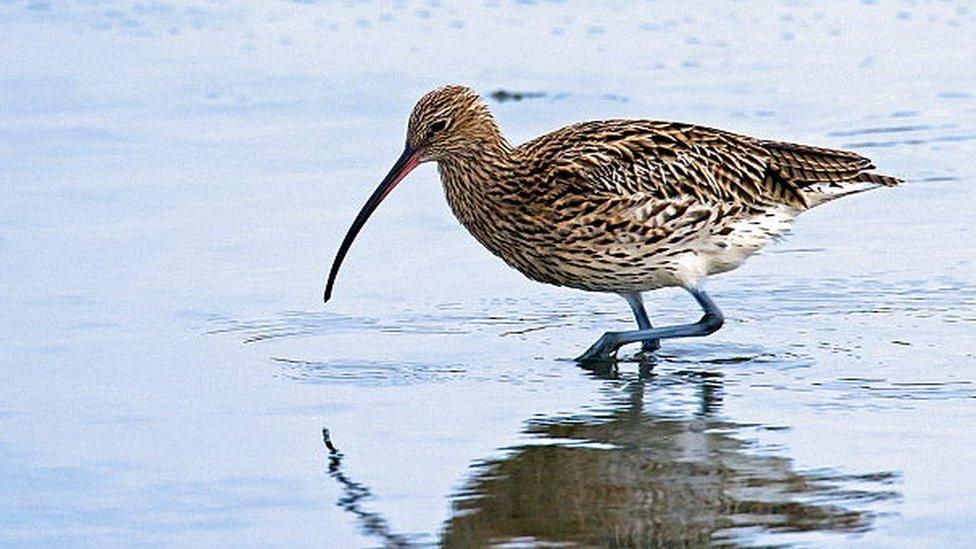
- Published20 April 2019
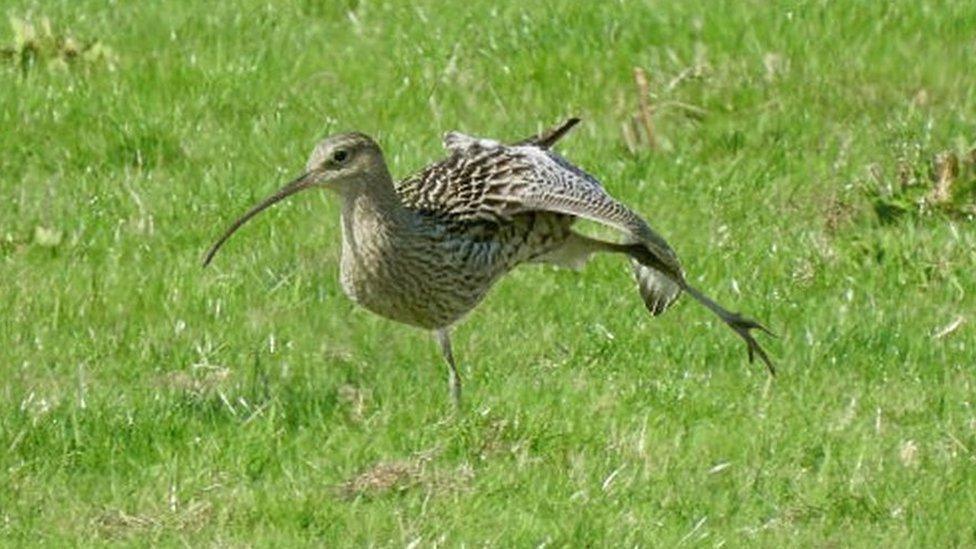
- Published15 March 2016
